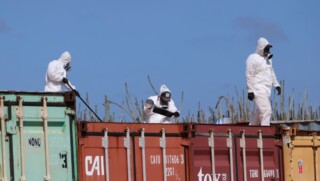Saba explores innovative mosquito control

The Aedes Aegypti mosquito is the mosquito that can spread dengue, chikungunya, Zika, Mayaro and yellow fever viruses, and other diseases.
The Bottom, Saba – The Executive Council of Saba says they remains dedicated to looking into all possibilities to eradicate the threat that the Aedes Aegypti mosquito poses on Saba.
Today, Thursday, July 6th, a thorough risk assessment of an innovative mosquito control method, requested by Saba, was published. The RIVM (Rijksinstituut voor Volksgezondheid en Milieu –National Institute for Public Health and Environment) assessed the safety of genetically modified mosquitoes and based on all the available data and biological mechanisms, they have concluded that the risks to human health and the environment are negligible. These conclusions are in line with similar evaluations performed by the safety councils of Brazil and the USA.
The Aedes Aegypti mosquito is the mosquito that can spread dengue, chikungunya, Zika, Mayaro and yellow fever viruses, and other diseases. The World Health Organization considers genetically modified mosquitoes as one of the most promising new technologies to fight this mosquito. The genetic modification makes the mosquitoes sterile, so they cannot reproduce. The (non-biting) males are released, and when they mate with wild female mosquitoes, their offspring do not develop into adults. This technology quickly lowers the number of mosquitoes and could even wipe out the Aedes Aegypti mosquito from an entire area or Island. This technology is currently being used in Brazil and the Cayman Islands.
The Executive Council of Saba can now further investigate the finances, acceptance and the expected effectiveness of the method. Other innovative mosquito control technologies will also be evaluated to find the right next step for Saba in protecting its residents from mosquito-borne diseases.













